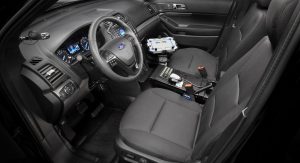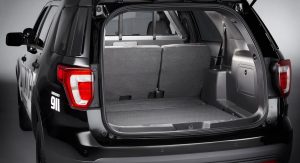Ford will address specific concerns from police departments by repairing potential carbon monoxide leaks in its Explorer police cars.
U.S. regulators have already launched an investigation into 1.33 million vehicles. Ford has also launched its own investigation into the matter and already has discovered holes and unsealed spaces in the back of some Police Interceptor Utility vehicles that had police equipment installed after leaving the factory.
Whenever a police or fire department routinely installs customized emergency lighting, radios and other features, they have to drill wiring access holes to the rear of the vehicle. If these holes are not properly sealed, they could create an opening where exhaust fumes could enter the cabin.
Ford says that they will cover the cost of specific repairs in every Police Interceptor Utility that may be affected, regardless of age, mileage or aftermarket modifications made after purchase.
The measures include checking and sealing off the rear of the vehicle, adding a new air-conditioning calibration that brings more fresh air into the cabin during heavy acceleration and checking for engine codes that indicate a damaged exhaust manifold.
Previously, the city of Austin, Texas announced the removal of all 400 Ford Explorer police vehicles from use, with several local outlets citing a city memo that said 20 police officers were found with elevated levels of carbon monoxide and three of them not returning to work.
Ford says that they have not found any elevated levels of carbon monoxide in civilian Ford Explorers, but their investigation is ongoing. NHTSA is currently evaluating preliminary testing that shows carbon monoxide levels may be elevated in certain driving scenarios.









